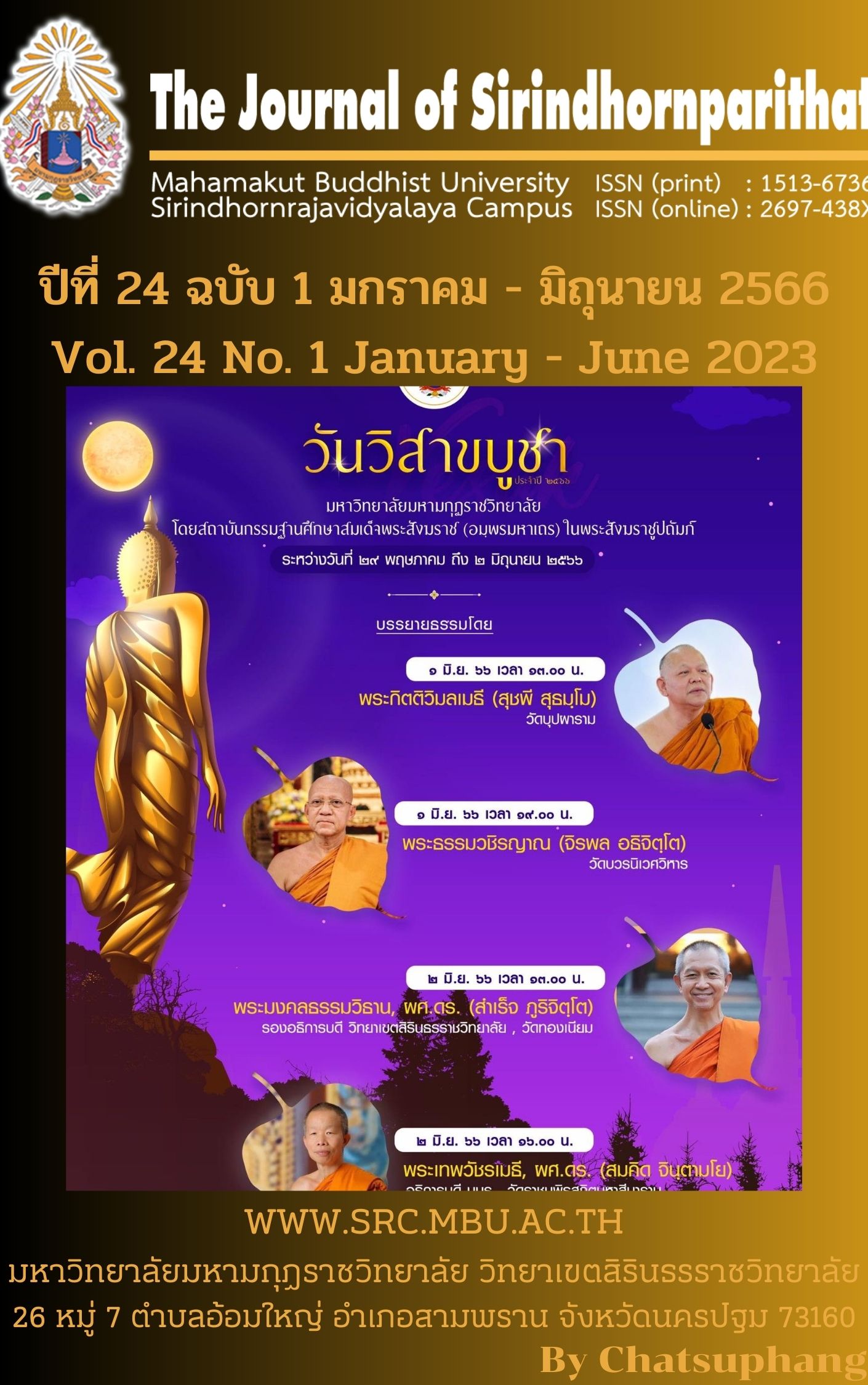Teachers’ perception of three communicative activities: Information gap, Role play and Simulation at schools in The Secondary Educational Service Area Office Bangkok1
Keywords:
Teachers’ perception, Information gap, Role play, Simulation, English teacher, English teacher, Schools in The Secondary Educational Service Area Office Bangkok 1Abstract
The research purpose were to investigate the perception of English secondary school teachers under the Secondary Educational Service Area Office Bangkok 1 2) to examine factors affecting the teachers’ perception of three communicative activities: Information gap, Role play and Simulation including differences of demographic factors – age, year of teaching experience and education level, and 3) to study the obstacles of three communicative activities: Information gap, Role play and Simulation. The target groups were 275 teachers under the Secondary Educational Service Area Office Bangkok 1. The purposive sampling was used to select the samples. The instrument for collecting data was the questionnaire. The data were analyzed and presented by Mean, Standard Deviation, and One-Way ANOVA.
The results revealed as follows: 1) Teachers under the Secondary Educational Service Area Office Bangkok 1 perceived three communicative activities: Information gap, Role play and Simulation as whole and in each activity at a high level. 2) There were statistically significant differences among those teachers with different age, year of teaching experience and education level at the significant level at .05. Excepting the perception of English secondary school teachers at different education level with Role paly activity had no difference.
References
กระทรวงศึกษาธิการ. (2551). หลักสูตรแกนกลางการศึกษาขั้นพื้นฐาน พุทธศักราช 2551. กรุงเทพฯ: โรงพิมพ์คุรุสภา. ลาดพร้าว
พิชญาภา กล้าวิจารณ์. (2560). “การพัฒนาทักษะการพูดภาษาอังกฤษของนักเรียนชั้นประถมศึกษาปีที่ 6 โดยใช้กิจกรรมบทบาทสมมติ (Role play).” วิทยานิพนธ์ปริญญาศิลปศาสตรมหาบัณฑิตสาขาวิชาภาษาอังกฤษเพื่อการสื่อสารในงานอาชีพ บัณฑิตวิทยาลัย มหาวิทยาลัยราชภัฏมหาสารคาม.
ทิศนา แขมมณี. (2547). ศาสตร์การสอน. กรุงเทพฯ: จุฬาลงกรณ์มหาวิทยาลัย.
ธิดารัตน์ วิเซียรลม. (2554). การใช้กิจกรรมบทบาทสมมติในการพัฒนาทักษะการฟังและการพูดภาษาอังกฤษของนักเรียนชั้นมัธยมศึกษาปีที่ 2 โรงเรียนหนองหลวงศึกษา. รายงานการศึกษาค้นคว้าอิสระปริญญาศึกษาศาสตร์มหาบัณฑิต. ขอนแก่น : มหาวิทยาลัยขอนแก่น.
วนิชา สิรรังหอม. (2563).“การใช้กิจกรรมเพื่อพัฒนาทักษะการพูดภาษาอังกฤษของผู้เรียนในบริบทที่มีการเรียนการสอนภาษาอังกฤษเป็นภาษาต่างประเทศ (EFL).” CRMA Journal of Humanities And Social Science Volume 7: 104-107.
Aida irona, and Ratmanida. (2518).“Using information gap activity in classroom interaction to increase the students’ speaking ability.” Journal of English language teaching 7(1) : 216-222.
Ellen D. Gagme, Carol Walker Yeakovich and Frank R. Yekovich. (1997). Cognitive Psychology of School Learning, The (2nd Edition). Allyn & Bacon.
Hammer, J. (2010). The practice of English Language Teaching Third Edition. London. Longman Press.
Merita Ismaili. (2016). “Information gap activities to enhance speaking skills of elementary level students.” Procedia Social and Behavioral Sciences. 232 : 612-616.
Yamane, Taro. (1967). Statistics, An Introductory Analysis, 2nd Ed., New York : Harper and Row.

Downloads
Published
Issue
Section
License
Copyright (c) 2023 Mahamakut Buddhist University

This work is licensed under a Creative Commons Attribution-NonCommercial-NoDerivatives 4.0 International License.
บทความที่ได้รับการตีพิมพ์เป็นลิขสิทธิ์ของ มหาวิทยาลัยมหามกุฏราชวิทยาลัย วิทยาเขตสิรินธรราชวิทยาลัย
ข้อความที่ปรากฏในบทความแต่ละเรื่องในวารสารวิชาการเล่มนี้เป็นความคิดเห็นส่วนตัวของผู้เขียนแต่ละท่านไม่เกี่ยวข้องกับหาวิทยาลัยมหามกุฏราชวิทยาลัย วิทยาเขตสิรินธรราชวิทยาลัย และคณาจารย์ท่านอื่นๆในมหาวิทยาลัยฯ แต่อย่างใด ความรับผิดชอบองค์ประกอบทั้งหมดของบทความแต่ละเรื่องเป็นของผู้เขียนแต่ละท่าน หากมีความผิดพลาดใดๆ ผู้เขียนแต่ละท่านจะรับผิดชอบบทความของตนเองแต่ผู้เดียว



